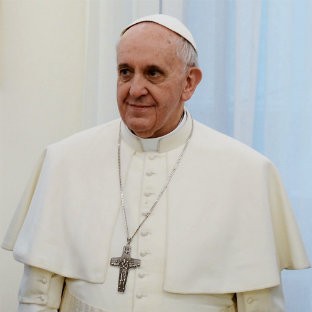Prayer for the pope
It is a fearful thing to be
The Pope.
That cross will not be laid on me
I hope.
A righteous God would not permit
It.
The Pope himself must often say
After the labours of the day,
“It is a fearful thing to be
Me.”
(A. E. Housman)
As I write this column, it is early Lent and Joseph Ratzinger, Pope Benedict XVI, still reigns, amid rival theories about the reasons for his retirement and rampant speculation about his possible successor. Irish bookmaker Paddy Power gives Cardinal Peter Turkson of Ghana 11/4 odds—and promises, if a black pope is elected, to refund all losing bets. Cardinal Marc Ouellet of Canada, who has confessed that to be elected pope would be “a living nightmare,” has reason to be concerned, for Paddy Power is ranking him next in line, with 6/1 odds. Richard Dawkins languishes near the bottom of the rankings at 666/1, so he is off the hook.





